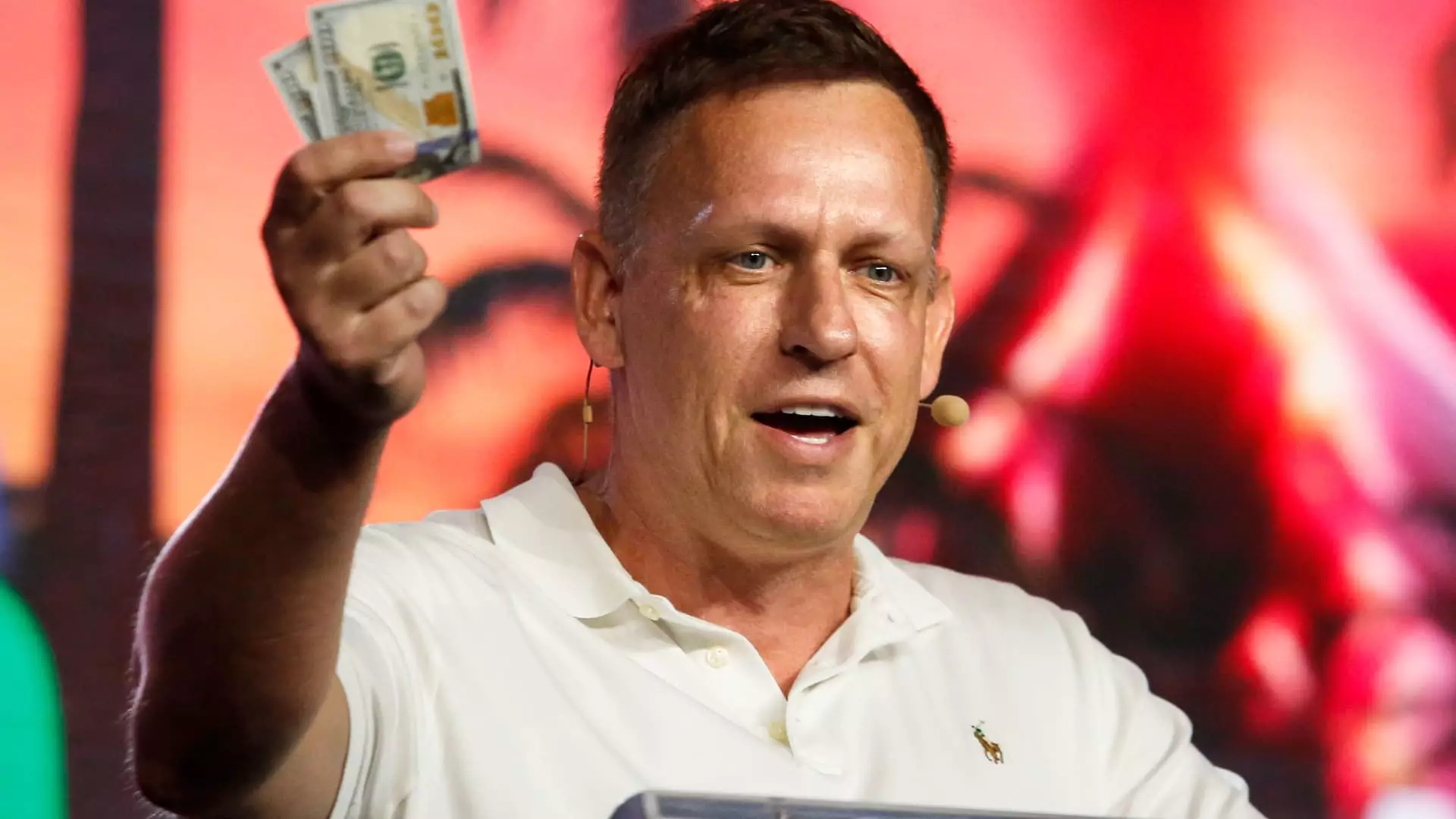In the realm of venture capital, nothing exemplifies ambition quite like the establishment of the Founders Fund Growth III, spearheaded by billionaire Peter Thiel. Recently, it was disclosed that this late-stage venture fund amassed a staggering $4.6 billion, signifying not only Thiel’s deft maneuvering in the financial playground but also reflecting the shifting dynamics of investor confidence within the tech industry. The $4.6 billion raised from a diverse group of 270 investors isn’t just a number; it symbolizes a renewed appetite for high-stakes investments amid an environment that most would consider unpredictable.
The mechanics behind this operation showcase the clout that Founders Fund has acquired since its inception in 2005. With partners like Napoleon Ta and Trae Stephens taking the helm, the fund has managed to attract substantial capital from its general partners, proving that even in uncertain economic climates, wealth can find a home in innovation and growth. This freshly minted capital is particularly noteworthy considering the backdrop of the virtually dormant IPO market, which poses significant challenges for startups looking to go public. Investors are signaling their readiness to bet big on the next wave of innovation, which, ironically, aligns with the uncertainty that has gripped the technology sector.
The Impact of Political Winds on Investment
It is important to note that the political climate plays a profound role in the landscape of venture capital. The recent back-and-forth regarding tariffs initiated by President Trump offers a particularly telling example. The excitement surrounding Founders Fund’s success is somewhat dimmed by the reality that political decisions can impact tech companies at a foundational level. The aftermath of tariff announcements led several high-profile firms to postpone their IPO plans, sending ripples of concern through the industry. When the market is rattled, even the most lucrative funds must tread carefully. This precarious balance between investment potential and regulatory risk signifies the challenges that venture capitalists like Thiel are navigating.
Thiel, who once fervently supported Trump’s rise to power, has shown signs of cracking loyalty as political tensions evolved. His recent comments—expressing an inclination to support Trump over Biden, albeit under duress—reveal a disconnection from the very political framework that once energized his investments. The political schism adds another layer of complexity for Founders Fund as it seeks to leverage its position during an economically tumultuous time.
A Portfolio Like No Other
The investment strategy of Founders Fund can be encapsulated in its impressive portfolio, which includes tech giants like Airbnb, Stripe, and SpaceX. These companies embody the very essence of innovation and disruption, yet they also come with inherent risks, especially in the face of unsteady legislative environments. This dichotomy—between the compelling allure of groundbreaking technology and the perilous conditions created by external factors—is a challenge that any venture capitalist must strategically manage.
Moreover, Founders Fund’s involvement in defense tech with companies like Anduril demonstrates a pivot toward sectors that are not just tech-centric but also intertwined with national security. In an age where geopolitical tensions are heightened, investments in defense technology may provide robust returns. However, this focus raises ethical questions about the implications of such investments, especially in terms of how they align with broader societal values.
Future Perspectives: The Road Ahead
As we look to the future, the implications of Founders Fund Growth III’s large capital raise extend beyond merely boosting its portfolio. It represents a clarion call to other venture firms about the necessity of adaptability and resilience in an unpredictable market. The fund’s ability to secure significant capital in a sluggish IPO climate may very well set the tone for future investments and the direction of venture capital as a whole.
It is clear that Thiel and his partners are not just maintaining a foothold but are actively seeking to influence the narrative around investment in a changing political and economic landscape. With traditional routes to liquidity constricted, the demand for substantial private capital is poised to grow. The question remains whether the venture capital space can continue to thrive amid political turbulence and economic uncertainty. For those watching closely, it’s a thrilling yet sober spectacle of ambition, risk, and the relentless pursuit of innovation.

